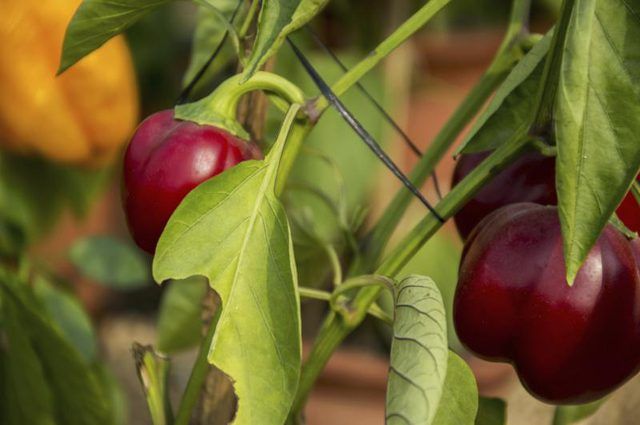Bulbs
Flower Basics
Flower Beds & Specialty Gardens
Flower Garden
Garden Furniture
Garden Gnomes
Garden Seeds
Garden Sheds
Garden Statues
Garden Tools & Supplies
Gardening Basics
Green & Organic
Groundcovers & Vines
Growing Annuals
Growing Basil
Growing Beans
Growing Berries
Growing Blueberries
Growing Cactus
Growing Corn
Growing Cotton
Growing Edibles
Growing Flowers
Growing Garlic
Growing Grapes
Growing Grass
Growing Herbs
Growing Jasmine
Growing Mint
Growing Mushrooms
Orchids
Growing Peanuts
Growing Perennials
Growing Plants
Growing Rosemary
Growing Roses
Growing Strawberries
Growing Sunflowers
Growing Thyme
Growing Tomatoes
Growing Tulips
Growing Vegetables
Herb Basics
Herb Garden
Indoor Growing
Landscaping Basics
Landscaping Patios
Landscaping Plants
Landscaping Shrubs
Landscaping Trees
Landscaping Walks & Pathways
Lawn Basics
Lawn Maintenance
Lawn Mowers
Lawn Ornaments
Lawn Planting
Lawn Tools
Outdoor Growing
Overall Landscape Planning
Pests, Weeds & Problems
Plant Basics
Rock Garden
Rose Garden
Shrubs
Soil
Specialty Gardens
Trees
Vegetable Garden
Yard Maintenance
What Soil pH Do Pepper Plants Grow Best In?
What Soil pH Do Pepper Plants Grow Best In?. The best soil pH for growing peppers (Capsicum spp.) varies slightly depending on your soil. Soil pH near 6.0 is best in mineral soils, which have low levels of organic matter. In organic soils, pH near 5.6 is best. Typically grown as annuals in the United States, pepper varieties may be hardy from U.S....

The best soil pH for growing peppers (Capsicum spp.) varies slightly depending on your soil. Soil pH near 6.0 is best in mineral soils, which have low levels of organic matter. In organic soils, pH near 5.6 is best. Typically grown as annuals in the United States, pepper varieties may be hardy from U.S. Department of Agriculture plant hardiness zone 9 through 12. Regardless of your pepper preferences, acidic soil helps them make the most of available nutrients.
Why pH Matters
Without proper nutrition, peppers won't be table worthy. Soil pH determines the availability of essential plant nutrients already in your soil and those you may add. Without pH in line, pepper nutrients stay out of reach. In high-pH soil, many micronutrients can't be absorbed by plants; nutrient deficiencies happen even though nutrients are plentiful. Soil pH also affects the way different elements interact. For example, potassium is most available in alkaline soil, but excess potassium limits the absorption of calcium that would otherwise be available. By getting soil pH near the optimal pepper levels, your peppers stay fueled with the nutrients they need most.
What Peppers Need
Peppers need all the nutrients other plants need, but they need them in different quantities. For example, too much nitrogen before peppers set their fruit leads to excess leaves and few peppers. Pepper plants also need specific nutrients to bear their best fruit. Calcium is especially important to pepper development. Blossom end rot is caused by calcium deficiencies due to low calcium or improper soil pH. When heavy rainfall leaches alkaline-supporting nutrients from soil, calcium is among the first to go; low pH results. Knowing if deficiencies are due to pH or true shortages, determines what to do with your peppers and your pH.
How Soil Tests Help
Soil tests estimate the availability of nutrients based on current pH, soil type, organic matter and other components. Use a local or regional soil testing laboratory familiar with your area for recommendations on pH changes and missing nutrients. Let the lab know you're growing peppers; it can tailor your recommendations. Always think in terms of pH ranges rather than absolutes. Even professional soil tests have an accuracy of plus or minus 0.5 pH unit. The time of year, the sample's salt and moisture content, and testing procedures all affect final results. If your target pH is 6.0, shoot for results between 5.5 and 6.5.
Ways to Adjust pH
Test your soil several months before planting peppers, so adjustments take hold before peppers hit the ground. Follow your test recommendations closely -- amendments that work in one region may be ineffective elsewhere. Incorporating organic matter and using organic mulches gradually lowers pH over time. Elemental sulfur worked 6 inches deep into some soils at a rate of 1/2 pound per 100 square feet can lower pH by 1.0 unit. Ground limestone raises soil pH 1.0 unit in some soils when applied at a rate of 2.5 pounds per 100 square feet. Wear protective clothing, including gloves and safety goggles when working with soil amendments, and avoid contact with exposed skin.